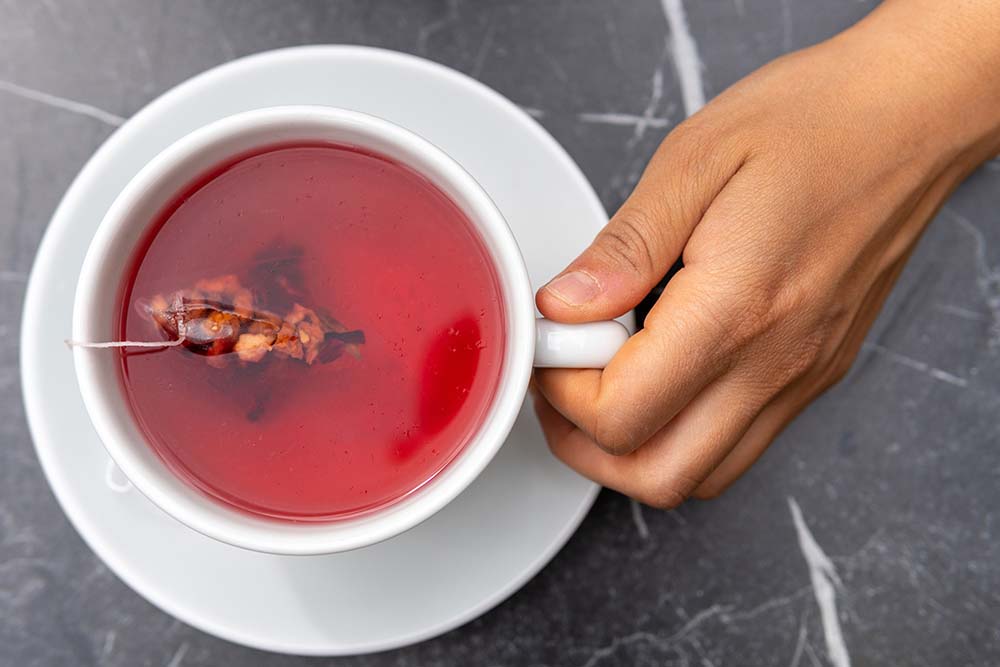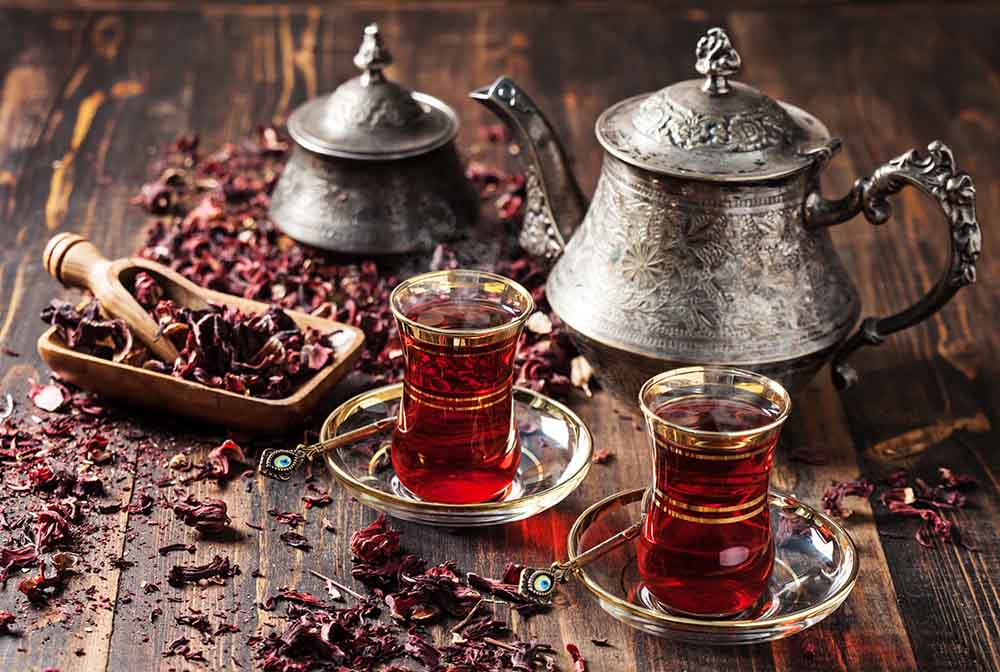Hibiscus tea has been enjoyed for centuries in many parts of the world, especially in Africa, Asia and the Middle East. Made from the dried calyces of the hibiscus flower, this herbal tea is known for its numerous health benefits, including antioxidant properties, anti-inflammatory effects and blood pressure regulation. Moreover, hibiscus tea is easy to prepare, caffeine-free and low in calories, making it a great alternative to sugary drinks.
Benefits of Hibiscus
Antioxidant Properties: One of the main hibiscus tea benefits is its high content of antioxidants, which can help neutralise free radicals in the body and prevent cellular damage. Studies have shown that hibiscus tea contains flavonoids, anthocyanins and other compounds that have potent antioxidant activity. By consuming hibiscus tea regularly, you may reduce your risk of chronic diseases, such as cancer, heart disease and diabetes.
Fights Inflammation: Another key benefit of hibiscus tea is its anti-inflammatory effects. Inflammation is a natural response of the body to injury or infection, but chronic inflammation can contribute to many health problems. By drinking hibiscus tea, you can reduce inflammation in the body and promote overall wellness. Some studies suggest that hibiscus tea may help alleviate symptoms of rheumatoid arthritis and other inflammatory conditions.

Lowers Blood Pressure: Hibiscus tea has been shown to have a significant effect on blood pressure. According to a review of several studies, hibiscus tea can lower both systolic and diastolic blood pressure in people with hypertension. This is believed to be due to the high content of polyphenols and other compounds that have a vasodilating effect, meaning they can relax blood vessels and improve blood flow.
Lowers Cholesterol: Another benefit of hibiscus tea is its ability to lower cholesterol levels. High cholesterol is a risk factor for heart disease, and by reducing it, you can improve your cardiovascular health. Some studies have found that hibiscus tea can lower LDL (bad) cholesterol and triglycerides, while increasing HDL (good) cholesterol. However, more research is needed to confirm these findings.
Supports Liver: Hibiscus tea may also support liver function, which is essential for detoxification and overall health. Studies have shown that hibiscus extract can protect the liver from oxidative stress and reduce liver damage in animal models. It may also help improve liver enzyme levels and reduce liver inflammation in people with non-alcoholic fatty liver disease.
How to Make Hibiscus Tea
Making hibiscus tea is simple and requires only a few ingredients. To make a cup of hibiscus tea, follow these steps:
1. Boil one cup of water in a small pot or kettle.
2. Add 1-2 teaspoons of dried hibiscus flowers to the water.
3. Let the tea steep for 5-10 minutes
4. Strain the tea into a cup and discard the hibiscus flowers.
5. If desired, add honey, lemon or other flavourings to taste.
6. Enjoy your freshly brewed hibiscus tea!

Expert Opinions on Having Hibiscus Tea
Many health experts recommend hibiscus tea for its numerous health benefits. For example, Dr Josh Axe, a certified doctor of natural medicine and clinical nutritionist, highlights the anti-inflammatory and antioxidant properties of hibiscus tea and recommends it for reducing blood pressure and cholesterol levels. Similarly, registered dietitian Keri Gans recommends hibiscus tea for its hydrating properties, low calorie count, and high antioxidant content. She suggests drinking it instead of soda or other sugary drinks.
Conclusion
Hibiscus tea benefits are numerous and varied, making it a great addition to your diet for overall health and wellness. With its potent antioxidant properties, anti-inflammatory effects, blood pressure regulation, cholesterol-lowering potential, and liver support, hibiscus tea may help prevent chronic diseases and improve your quality of life. Moreover, it's easy to make, delicious and versatile, so you can enjoy it in many ways. Try adding hibiscus tea to your daily routine and experience its many benefits for yourself!
FAQs
Is hibiscus tea safe to drink?
Yes, hibiscus tea is generally considered safe for most people. However, it may interact with certain medications, such as diuretics and antihypertensive drugs, so it's best to consult with your doctor before adding it to your diet.
What's the best time to drink hibiscus tea?
You can drink hibiscus tea at any time of the day, but some people prefer to drink it in the morning or afternoon, as it can provide an energy boost without the caffeine jitters. Others drink it in the evening, as it's a relaxing and calming drink.
Can hibiscus tea improve skin health?
Yes, hibiscus tea may help improve skin health due to its high content of antioxidants and anti-inflammatory compounds. Some people use hibiscus tea topically as a natural skin toner or as a hair rinse to promote hair growth and prevent hair loss.